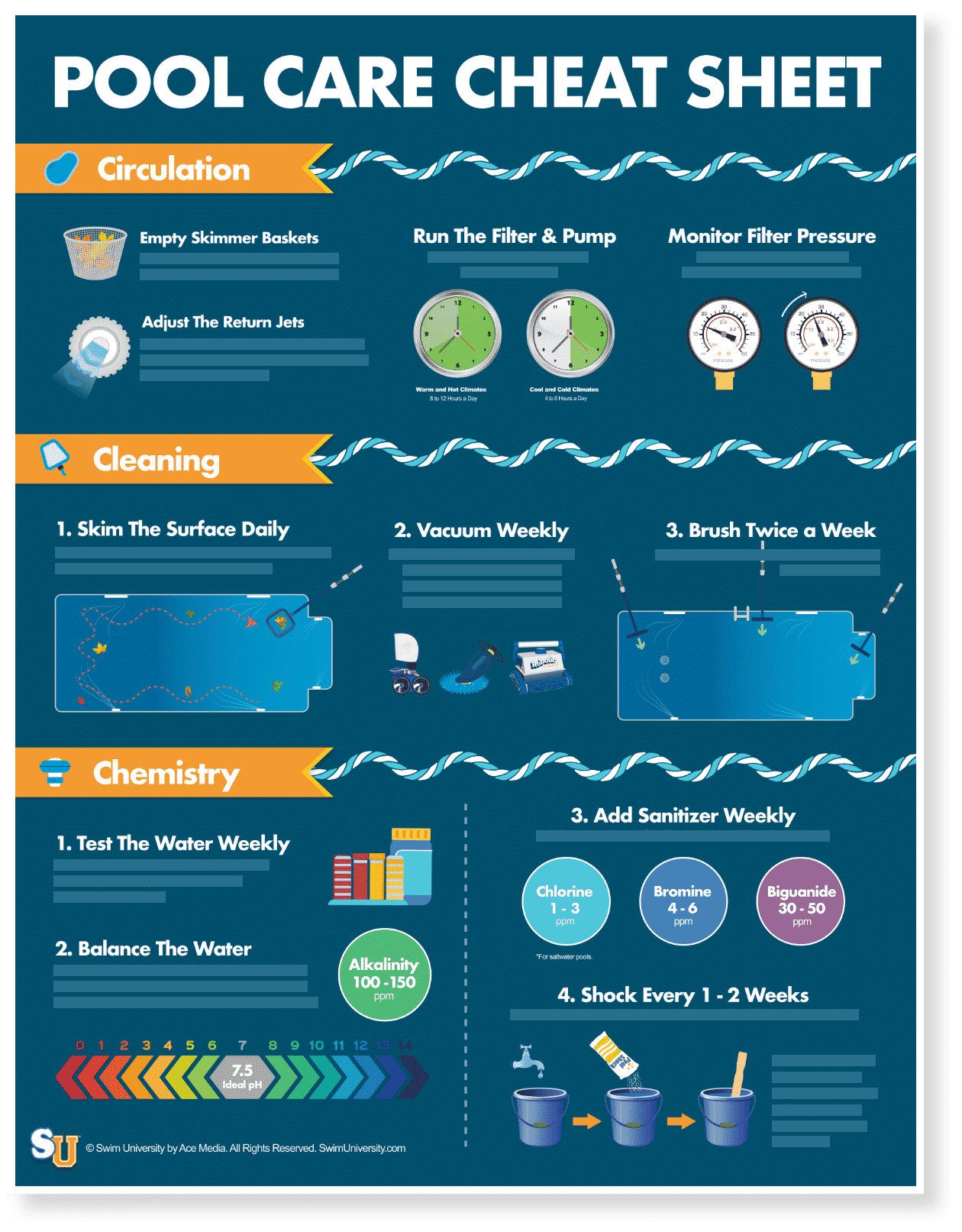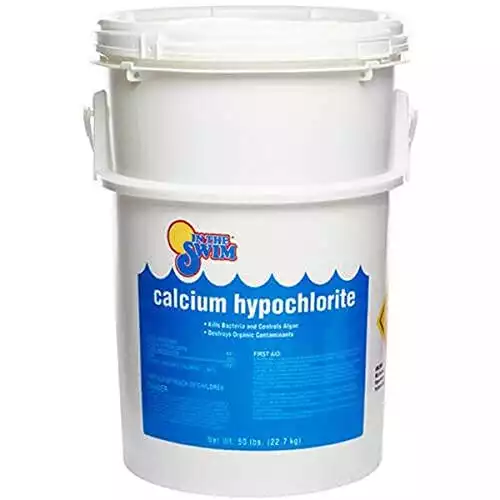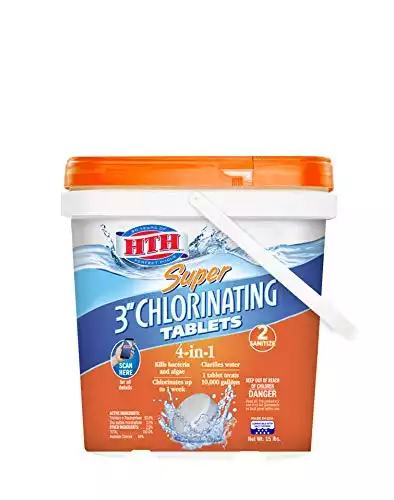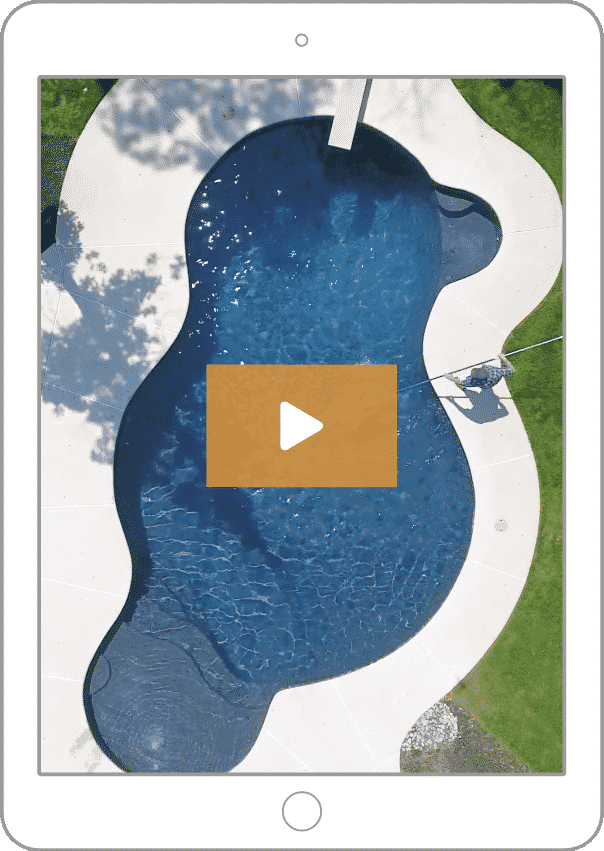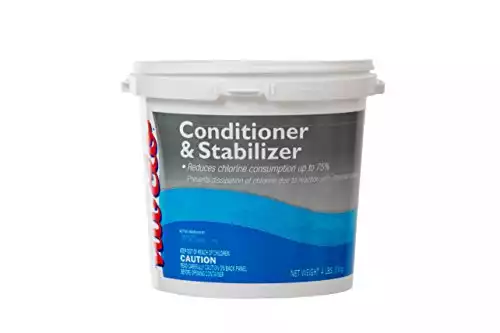If you’re a new pool owner, all the different chemicals you have to use may be pretty confusing. One of the first things you’ll be looking for is chlorine to clean your pool, only to find that there are two types—stabilized and unstabilized chlorine.
They sound pretty much the same, so how different could they be? And does it really matter whether you use one or the other? In short, yes. It matters a lot. But the first step in choosing which one to use is understanding the differences between them.
What is Unstabilized Chlorine?
Cyanuric acid stabilizes chlorine, making it last longer in the pool. Without it, chlorine is quickly burned off by the sun’s ultraviolet (UV) rays.
Unstabilized chlorine is simply chlorine that has not had cyanuric acid added to it. This means it dissipates more quickly, you won’t get as much sanitizing power, and you’ll have to add more chlorine more often.
So if it’s vulnerable to the sun, why would you use unstabilized chlorine?
- It works best with indoor pools where you don’t need to worry about the sun.
- It can be used as pool shock.
- It’s ideal for quick doses if your pool is getting heavier than normal use.
Just remember that, because there’s no stabilizer, it won’t remain in your pool for very long. Keep an eye on the chlorine to make sure it stays at 3 parts per million (ppm), and add chlorine as necessary to maintain that level.
What is Stabilized Chlorine?
If unstabilized chlorine doesn’t have cyanuric acid in it, that means … you guessed it! Stabilized chlorine does.
The cyanuric acid helps the chlorine remain in the pool longer, which makes it more effective. You also won’t have to add as much chlorine as often as you would with unstabilized chlorine.
Why use stabilized chlorine?
- It can reduce the amount of chlorine you use in your pool.
- It can help you save money on chlorine.
- It makes caring for your water easier and less time-consuming.
But stabilized chlorine has its downside too. If cyanuric acid levels get too high, chlorine’s effectiveness will be diminished. You’ll have to dilute your pool water to remedy the situation.
Stock up and save money on chlorine tablets for the season by getting the standard 3-inch stabilized chlorine pucks.
Frustrated by adding chemicals and trying to keep your pool clear all the time?
We cut out all the confusion of pool maintenance in this easy-to-read illustrated ebook and video course. It'll help you save $100 right away on pool care!
Click Here to Learn MoreShould You Use Stabilized or Unstabilized Chlorine?
There’s no right or wrong answer here. It all depends on you and your pool.
If you have an indoor pool, or find yourself needing to shock your pool pretty often, go with unstabilized chlorine.
But if you have an outdoor pool, and you want to make water maintenance easier on yourself while spending less money, stabilized chlorine tablets are the way to go.
Note: If you use unstabilized chlorine, you can always add cyanuric acid yourself. Just be sure to keep the level at or below 100 ppm.
Keep your chlorine from being burned off too quickly by the sun's UV rays. CYA will help you keep a better chlorine reading in your pool.
What If I Told You …
… you could use either stabilized or unstabilized chlorine, and your pool would still be clean, sanitized, and swimmable? All you have to do is choose the one that best suits your pool’s needs.
And now that you know the difference between the two, that choice just got a lot easier.
Happy Swimming!

Recommended Guides
Is a non-chlorine shock right for your pool? Here are a few pool maintenance scenarios when it works well and when it doesn't.
Should you switch from granules to chlorine tablets? Yes, if you're looking for an easier, more effective way to sanitize your pool. Find out why.
Need to lower the cyanuric acid in your pool? Here's the guaranteed way to bring down your CYA levels in your pool water.
Does adding a pool chemical once a year sound too good to be true? Welcome to pool stabilizer! Learn how important it is to your pool's cleanliness.
